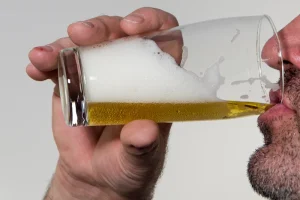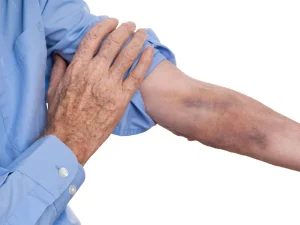
Engaging in new, meaningful hobbies can help fill the time once spent on substance use. This activity explores various hobbies, encouraging members to try activities that bring joy and fulfillment, enhancing mental health and enriching life. Like developing a healthy relationship with others, becoming your own best friend is a process that takes time and dedication. As you work the 12 Steps of recovery, you will undergo a transformational process that will teach you how to accept yourself – flaws and all. When you have a healthy relationship with yourself, you are more likely to have healthy relationships with other people.
Set boundaries
Together, we can create a future filled with hope, healing, and healthy relationships. As you progress in your recovery, your relationships will naturally evolve, reflecting the changes and growth you experience along the way. The person you are in recovery is likely very different from the person you were during active addiction, and as a result, the dynamics of your relationships may shift. Some connections may deepen and become more meaningful, while others may no longer serve your growth or align with your values. This evolution is a normal and healthy part of the recovery process, but it requires ongoing attention and intentionality.
Learn
Meeting daily responsibilities—whether work-related, parenting, or household tasks—shows your trustworthiness and character. The Greater Good Science Center studies the psychology, sociology, and neuroscience of well-being, and teaches skills that foster a thriving, resilient, and compassionate society. In a study of mothers and daughters, social psychologist Beverley Fehr was surprised by how emotional they grew during a closing exercise that centered on gratitude. Each mother named three qualities she appreciated about her daughter and the daughter reciprocated. This session offers guidance on budgeting, saving, and managing finances, providing members with practical tools to reduce financial stress and improve stability.
How to Navigate Relationships While in Recovery
- Sobriety has a profound positive impact on relationships by fostering personal growth and healthier dynamics.
- Having a healthy relationship with yourself will largely determine how much you enjoy your life.
- Communicating these boundaries effectively to friends, family, and support systems is essential in fostering mutual respect and understanding.
- Open communication about boundaries is necessary to ensure mutual understanding.
- These programs offer structured support where individuals can share their experiences, thus creating a shared bond that nurtures resilience.
- Therefore, it’s crucial to assess one’s surroundings and establish clear physical and emotional boundaries to safeguard sobriety.
Having a healthy relationship with ourselves is just as (if not more) important than having heathy relationships with others. This process allows individuals to take responsibility for their actions, heal past wounds, and rebuild damaged relationships. Furthermore, relationships act as a mirror, reflecting our progress and accountability. Loved ones can offer insight, hold us accountable relationships and recovery to our goals, and provide perspective on our actions and behaviors. They can help identify triggers and patterns that may hinder our recovery, allowing us to make the necessary adjustments and improvements.

Reduce Stress and Emotional Overload
During times of active substance abuse, there are usually fewer positive interactions with loved ones. This magnifies the impact on relationships—there are more negative experiences and fewer positive experiences in relationships. Taking care of oneself is essential for fostering healthy relationships. Prioritizing self-care enables individuals to maintain emotional stability and resilience. Healthy personal relationships can provide emotional support, accountability, and encouragement throughout the recovery journey. Addiction treatment is just a part of the wider recovery process, which entails (re)learning how to live a good life.


Remember, cultivating self-love is a continuous process that requires dedication and compassion. Support systems and therapy are integral to the recovery journey from substance use disorders. They offer both emotional backing and practical assistance, making the transition to sobriety considerably more manageable.
- The truth is, when done right, boundaries strengthen relationships, increase self-respect, and create a solid foundation for long-term sobriety.
- Incorporating activities such as exercise, mindfulness, therapy, and hobbies can enhance overall well-being and positively impact relationships.
- Calls to numbers marked with (I) symbols will be answered or returned by one of the treatment providers listed in our Terms and Conditions, each of which is a paid advertiser.
As you continue to work on yourself and your recovery, you will be less likely to engage in these kind of relationships. You will find them unappealing because they take away from your life rather than add to it. The key to a happy life is not just to have relationships, but to have HEALTHY relationships. In recovery, we must work to establish health and wellness in all alcohol rehab areas of our lives. This includes how we interact with the world around us, how we approach the very sacred relationship we have with ourselves, and how we communicate with our Higher Power.
